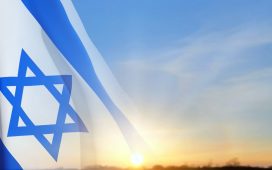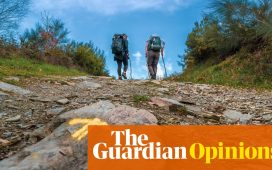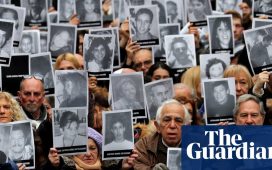Until a few weeks ago, the cloud that spread across the world in the spring had perhaps displaced another in most people’s minds. Yet as the second wave of the pandemic strikes Europe, an older horror is resurging too. Monday’s deadly terrorist attack in Vienna killed four people and wounded 22. It followed the beheading of the French teacher Samuel Paty by a man angered that he had shown pupils caricatures of the prophet Muhammad, and a knife attack at a church in Nice last week that claimed three lives. In the wake of the Austrian attack, the UK raised its terrorism threat level to severe, its second highest level, indicating that an attack is judged highly likely. The home secretary, Priti Patel, described the decision by the independent Joint Terrorism Analysis Centre as a precautionary measure, rather than a response to specific information.
Monday’s attack took place in the last few hours before Austria reentered lockdown to curb the spread of Covid-19. Police shot dead a gunman, but are still determining whether he acted alone or with others. They have identified the 20-year-old man as a citizen of both North Macedonia and Austria, who had been released early from prison after his conviction for membership of Islamic State.
Inevitably, questions will follow about the actions of security services in this case, and the issue of handling significant numbers of extremists. But broader questions must also be considered. Killings in one country have often been followed by attacks in another. Jihadist groups have seized upon Mr Paty’s killing and the row over the cartoons more generally to incite hatred and violence. While many leaders abroad have condemned the terrorist attacks in Europe, rhetoric from some in the wake of Mr Paty’s murder has dangerously fostered the perception that Islam itself is under attack. Turkey’s president, Recep Tayyip Erdoğan, has claimed that Muslims are “now subjected to a lynching campaign similar to that against Jews in Europe before the second world war”. Imran Khan, Pakistan’s prime minister, accused the French president, Emmanuel Macron, of “attacking Islam”. (Both men have been strikingly silent about China’s treatment of Muslim Uighurs, around a million of whom have been held in detention camps in Xinjiang.)
Austria’s chancellor, Sebastian Kurz, has vowed to give no room to hatred, warning that Islamist terror sought to split society. His stress that the country’s enemies were terrorists, not the members of a religious community, was welcome: “This is not a fight between Christians and Muslims, or Austrians and migrants, but a fight between civilisation and barbarity,” he said. Monday’s attack on Kabul University, in which 22 students were slain and as many wounded by Isis-affiliated gunmen – the second killing of Afghan students in less than a fortnight – is a potent reminder that most victims of Islamist terrorism worldwide are Muslims.
Maintaining the distinction in public discourse will be crucial. Mr Kurz has previously pursued hardline anti-immigrant policies, and this year extended a ban on religious head coverings in schools, which applies to the hijab but not to Jewish or Sikh headgear. As in France, where Marine Le Pen of National Rally has seized upon the attacks ahead of the 2022 presidential election, there is real concern that a necessary stand against extremism and violence could degenerate into Islamophobia and collective punishment. Soon after the Nice attacks, police in Avignon shot dead an armed man, reportedly a far-right extremist, who had assaulted another man. In the UK last year, police warned that the fastest-growing terror threat was from the far right.
This is a particularly fragile moment for social cohesion across Europe. The personal and economic strains imposed by coronavirus are being felt all the more deeply as tougher restrictions take hold across the continent. Politicians must be more careful and responsible than ever as they confront violence and hatred.





